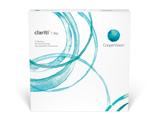
With the holiday season approaching, it could be easy to forget to spend the dollars in your flexible spending account. Flexible Spending Accounts (FSAs) are a benefit offered by most employers that allow an employee the opportunity to put some of his/her salary aside before taxes to pay for many common out-of-pocket expenses that are health related.
Use it or Lose it
Unlike a health savings account (HSA) or healthcare reimbursement arrangement (HRA), FSA plans follow the “Use It or Lose It” rule – meaning any funds in your healthcare flexible spending account by the end of each plan year or grace period will be forfeited. So if you still have dollars in your FSA account, now would be a great time to book an appointment with your eye doctor to take care of your eyes.
Is eye care FSA eligible?
Yes! Your FSA or HSA can cover many of your eye care related expenses, including eye exams, glasses and contact lenses. One in five Americans delay having an annual eye exam because their to-do list is too long, according to a survey. However, poor vision can lead to job loss, social difficulties and the pain and cost of falls and accidents. Getting a regular eye exam can not only prevent vision loss, but also help your overall health. In fact, eye doctors often are the first health care professionals to detect chronic systemic diseases such as high blood pressure and diabetes, so make sure to make time for your eyes.
If you are interested in using your FSA dollars towards contact lenses, CooperVision has some great rebate offers and free trials. Make sure to ask your eye doctor about trying some CooperVision contact lenses before your FSA dollars are gone.





